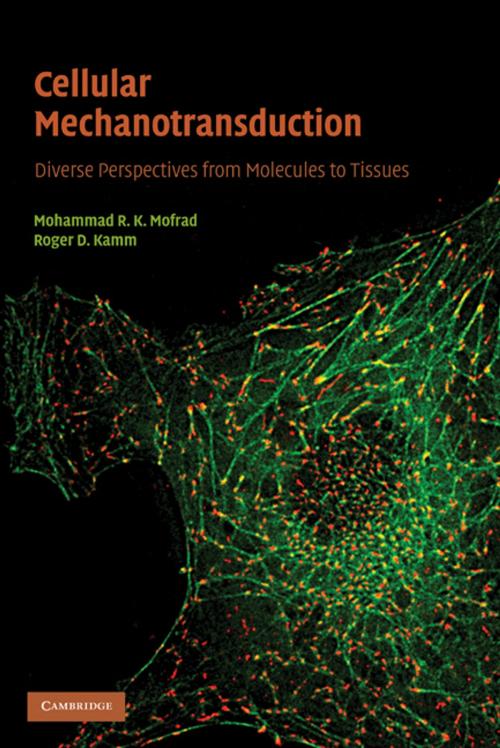Cellular Mechanotransduction
Diverse Perspectives from Molecules to Tissues
Nonfiction, Science & Nature, Science, Biological Sciences, Biotechnology, Technology, Engineering| Author: | ISBN: | 9781316142295 | |
| Publisher: | Cambridge University Press | Publication: | November 23, 2009 |
| Imprint: | Cambridge University Press | Language: | English |
| Author: | |
| ISBN: | 9781316142295 |
| Publisher: | Cambridge University Press |
| Publication: | November 23, 2009 |
| Imprint: | Cambridge University Press |
| Language: | English |
'Mechanotransduction' is the term for the ability, first described by 19th-century anatomist Julius Wolff, of living tissues to sense mechanical stress and respond by tissue remodeling. More recently, the scope of mechanotransduction has been expanded to include the sensation of stress, its translation into a biochemical signal, and the sequence of biological responses it produces. This book looks at mechanotransduction in a more restricted sense, focusing on the process of stress sensing and transducing a mechanical force into a cascade of biochemical signals. This stress has become increasingly recognized as one of the primary and essential factors controlling biological functions, ultimately affecting the function of the cells, tissues, and organs. A primary goal of this broad book is also to help define the new field of mechanomics, which attempts to describe the complete mechanical state of a biological system.
'Mechanotransduction' is the term for the ability, first described by 19th-century anatomist Julius Wolff, of living tissues to sense mechanical stress and respond by tissue remodeling. More recently, the scope of mechanotransduction has been expanded to include the sensation of stress, its translation into a biochemical signal, and the sequence of biological responses it produces. This book looks at mechanotransduction in a more restricted sense, focusing on the process of stress sensing and transducing a mechanical force into a cascade of biochemical signals. This stress has become increasingly recognized as one of the primary and essential factors controlling biological functions, ultimately affecting the function of the cells, tissues, and organs. A primary goal of this broad book is also to help define the new field of mechanomics, which attempts to describe the complete mechanical state of a biological system.















